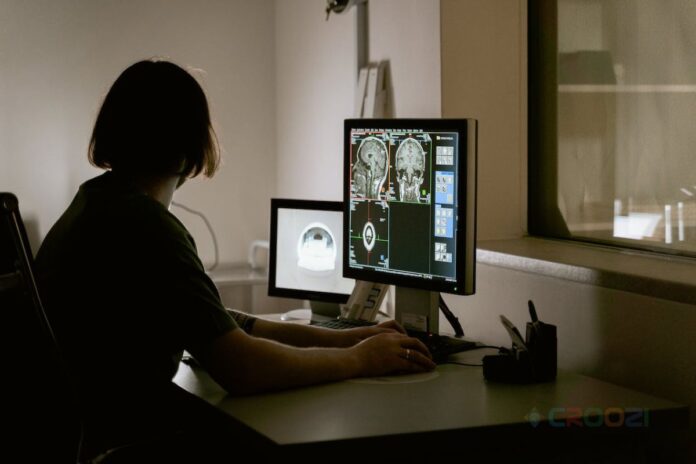Here’s 5 Ways Technology Can Help Make Medical Data Much More Accurate
In healthcare, the integration of technology has emerged as a catalyst for transformative advancements, particularly in the realm of medical data accuracy. This paradigm shift is not merely about embracing innovation for the sake of modernization but a strategic leap toward enhancing the precision and reliability of crucial medical information. In this article, we delve into these five pivotal ways technology is shaping the landscape of medical data accuracy, ushering in a new era of informed decision-making and improved patient outcomes.
1. Advanced-Data Collection Methods
Implement state-of-the-art technology for advanced data collection methods in the medical field. Employ a diverse array of sensors, wearables, and Internet of Things (IoT) devices to continuously monitor patients’ vital signs, symptoms, and behavior. This approach ensures a constant stream of accurate and real-time data, providing healthcare professionals with a comprehensive understanding of patient’s health statuses. By leveraging these cutting-edge tools, the medical community can enhance precision in data collection, facilitating more informed decision-making processes. This proactive monitoring not only aids in the early detection of potential health issues but also contributes to a more responsive and personalized approach to patient care.
2. Artificial Intelligence in Diagnostics
Integrate artificial intelligence (AI) into diagnostic processes to bolster the accuracy and efficiency of medical assessments. Sophisticated algorithms and machine learning models can swiftly analyze extensive datasets, identifying intricate patterns and anomalies. With this capacity, medical practitioners can improve the accuracy of their diagnoses and gain a more comprehensive grasp of their patient’s problems. By harnessing the power of AI, the medical community can expedite the identification of potential health issues, contributing to early intervention strategies and improved patient outcomes. The integration of AI in diagnostics marks a transformative shift, offering healthcare practitioners a powerful tool for data interpretation and decision-making, ultimately advancing the quality of medical care through more accurate and timely diagnosis.
3. Electronic Health Records (EHR) Integration
Integrate Electronic Health Records (EHR) with advanced technology to streamline the management of medical data across healthcare systems. This integration ensures seamless communication among various healthcare providers and departments, promoting accuracy by minimizing errors in data entry and providing a comprehensive overview of a patient’s medical history. The interoperability of EHR systems significantly enhances the efficiency of healthcare delivery. Moreover, it plays a crucial role in implementing the concept of inter-rater reliability, ensuring consistency and agreement in the interpretation of patient data among different healthcare professionals. This fosters a standardized approach to medical recordkeeping, promoting a more cohesive and reliable healthcare ecosystem.
4. Telemedicine and Remote Monitoring
Embrace the power of telemedicine and remote monitoring solutions to revolutionize patient care. Incorporating these technologies, healthcare professionals can remotely monitor patients, ensuring continuous and accurate data collection. This approach is particularly advantageous in managing chronic conditions, allowing for timely adjustments to treatment plans based on real-time information. Through virtual consultations made possible by telemedicine, patients can get expert medical care from the comfort of their own homes. The effective combination of remote monitoring and telemedicine not only makes healthcare services more easily accessible but also helps to create patient management plans that are more proactive and individualized. This transformative approach aligns with the evolving landscape of healthcare, providing a scalable solution to meet the diverse needs of patients.
5. Blockchain for Data Security and Integrity
Leverage blockchain technology to fortify the security and integrity of medical data. By implementing decentralized and tamper-proof ledgers, blockchain ensures an immutable record of patient information, safeguarding it from unauthorized access or manipulation. This advanced security protocol addresses the growing concerns surrounding data breaches and privacy violations within the healthcare sector. Beyond security, blockchain enhances the reliability of medical records over time, contributing to a trustworthy and transparent healthcare ecosystem. The hazards connected with centralized data storage are reduced by the distributed structure of the blockchain, which eliminates the possibility of a single point of failure. Embracing blockchain for medical data management signifies a significant stride towards ensuring the confidentiality and accuracy of patient information in an increasingly digitized healthcare landscape.
Conclusion
From the precision afforded by advanced data collection methods to the transformative impact of artificial intelligence on diagnostics, each technological avenue explored contributes to a more nuanced understanding of patients’ health. The integration of Electronic Health Records (EHR), coupled with the power of telemedicine and the security measures inherent in blockchain, collectively form a robust framework for enhancing the reliability and accessibility of medical information.

Recent Comments